David Mann is an award-winning writer, editor, and arts journalist living in Joburg. By day he works as a writer for the cross-disciplinary art space The Centre for the Less Good Idea, while his reviews, essays on art, and short fiction are widely published.
His debut collection of short stories, Once Removed draws us into the fold of the South African contemporary art world traversing upscale galleries, crumbling museums, and private homes. Mann is aware that encounters with art can change us – on levels both profound and banal – and has genuine affection for the world he writes about. And so, however sharp his critiques and unflinching his perception, the stories are wonderfully human. The rich interiority of his characters and Mann’s own glowing sense of humour deliver us from tale to tale.
This collection is recommended reading for any fan of short-form storytelling living in this country, not only those on intimate terms with art themselves. Mann says, “A reader doesn’t need to be immersed in the world of artists, critics, exhibitors, gallerists, or academics to access the collection, and to enjoy the imbalances, precarity, hilarity, and possibilities represented in it."
Ahead of the launch of Once Removed at Melville's Love Books on Wed, Jun 5, we caught up with Mann to hear more about his engagement with the arts, fiction writing and, of course, Joburg – the city he calls home.
"The perfect weekend in Joburg includes... the gallery, the theatre, the bookstore, the café, the park, and probably a quick trip to the mall if we’re being honest."
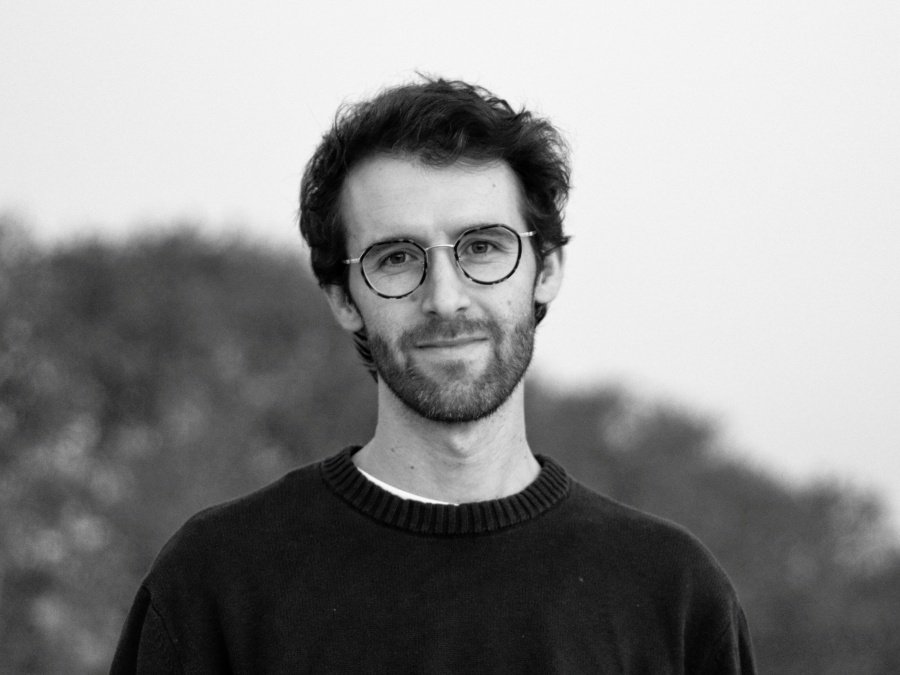
What makes Joburg the place you choose to call home?
Youlendree [my partner], my cat, and all the people I’ve come to know and love since moving here almost a decade ago.
Your debut collection of short stories, Once Removed is a wry but not unloving window into the South African art world. What characterises your relationship with art and artists?
I write about art and artists every day. It’s how I make a living, but also how I make meaning out of the world and my place in it. I started writing about art and performance because at the time, it was all that made sense to me. Now, it’s what helps me make sense of everything else.
As an observer, critic, and writer, you occupy a unique position within this world as both an insider and an outsider. How do you understand this, personally and professionally?
I think there are so many functions to writing about art, but on a very basic level, I believe that all creative acts – writing, performing, making objects, developing spaces – are immeasurably enriched and improved through the act of opening up the process or the final result to an outside eye. I like to think that those of us who write about art provide this function. We offer up an informed observation and reflect back to the artist a new way of seeing or engaging with their work, or to amplify the work in ways that give it a greater resonance. But all of this requires a critical distance on the writer's part. You are temporarily immersed in the work or the process, but never wholly implicated in it. This balance of insider/outsiderness is something I’ve explored in a few of the stories in Once Removed and, of course, the book’s title is a play on this precarious position as well.
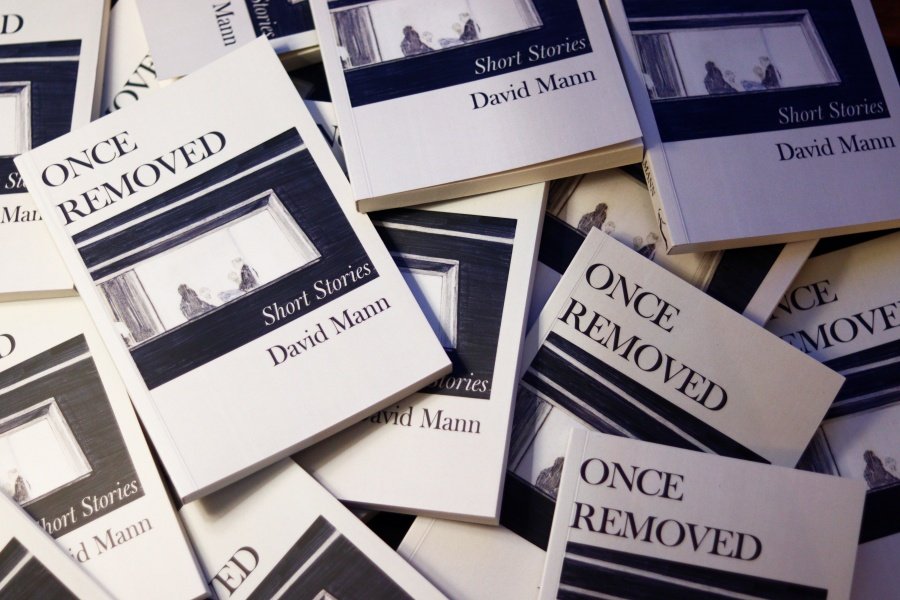
When you studied journalism, did you always set out to write about art? What drew you to the subject and keeps you inspired?
I saw a lot of theatre and visual art when I was a student. Partly because I spent too much time hanging out with the drama kids outside the Rhodes Theatre, but also because of the National Arts Festival, which transformed sleepy Makhanda into the centre of the South African art world for 10 days each year. As a student reporter, I wrote for Cue, the Festival publication, and I had extraordinary editors like Sean O’Toole who gave me a real understanding of what it was to write about art for a living. It all started there. Last year, I was invited to be the editor of Cue and work with the journalism students over the Festival. Watching new writers fall in love with the transformative power of art and performance is just one of the many things that inspire me.
What were the challenges of channelling your firsthand experiences and observations into works of fiction?
An interesting challenge was representing artworks, performances, and artistic spaces in a fictional context. They are drawn from many sources and points of inspiration, but they are essentially new fictional objects you’re generating and trying to bring to life in convincing, engaging ways. I had to suspend the art critic and open space for the fiction writer. That said, the reader always brings their experiences and associations to the story. People keep telling me they know the artist or the gallery in a certain story and I keep assuring them that they don’t – it’s fiction!
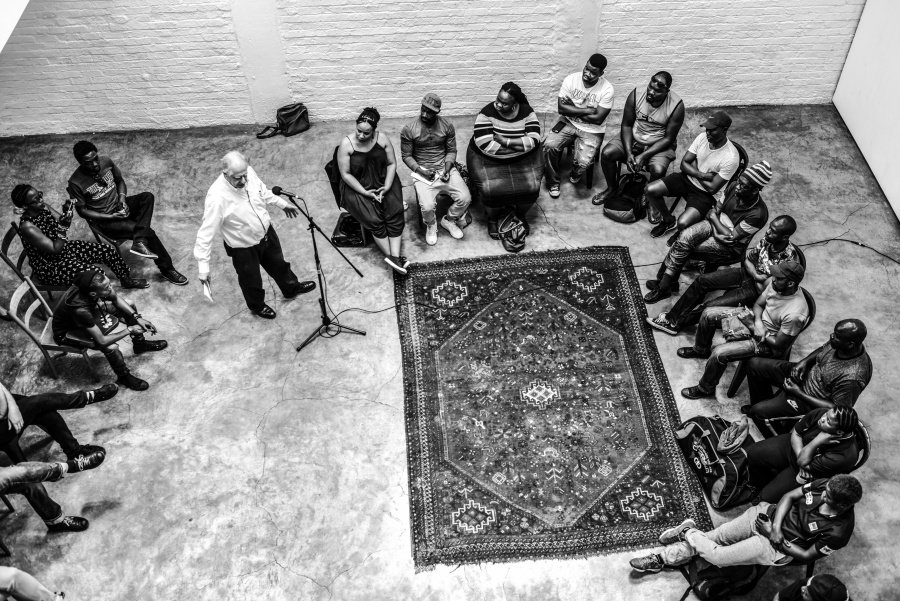
Are there any boundaries you won't cross?
I tend to stay away from Midrand :)
Tell us more about the work you do with The Centre for Less Good Idea, where you've carved out a niche.
I’ve been with The Centre since 2018 after being invited to write for its fourth season by Bronwyn Lace and the late Jane Taylor. It’s a hugely valuable space for artistic exploration, play, and collaboration; I work there as one of the 'mirrors in the room', reflecting in words the various processes and incidental discoveries taking place in the room. No performance, process, or idea is ever the same, so the role is a rare challenge. I am always looking for new ways of seeing and reflecting what emerges on the workshop floor.
What makes someone a Joburger? "Once or twice a year, you need to tell everyone that you hate the place and that you’re leaving for good. Then, after a short trip to Clarens or Cape Town, or even your nearest public park, come back and profess your unwavering love for Johannesburg."
What is a surprising thing people might learn about Joburg by having a conversation with you?
That the best double espresso in the city is from the Total Garage on Oxford Road, just past the Thrupps.
Your favourite Joburg author or favourite Joburg book?
Ivan Vladislavić.
Your favourite Joburg suburb, and why you choose it?
This changes all the time. At the moment it’s Parkview, because I’ve joined a running club there and because Croft & Co does a great breakfast bagel.
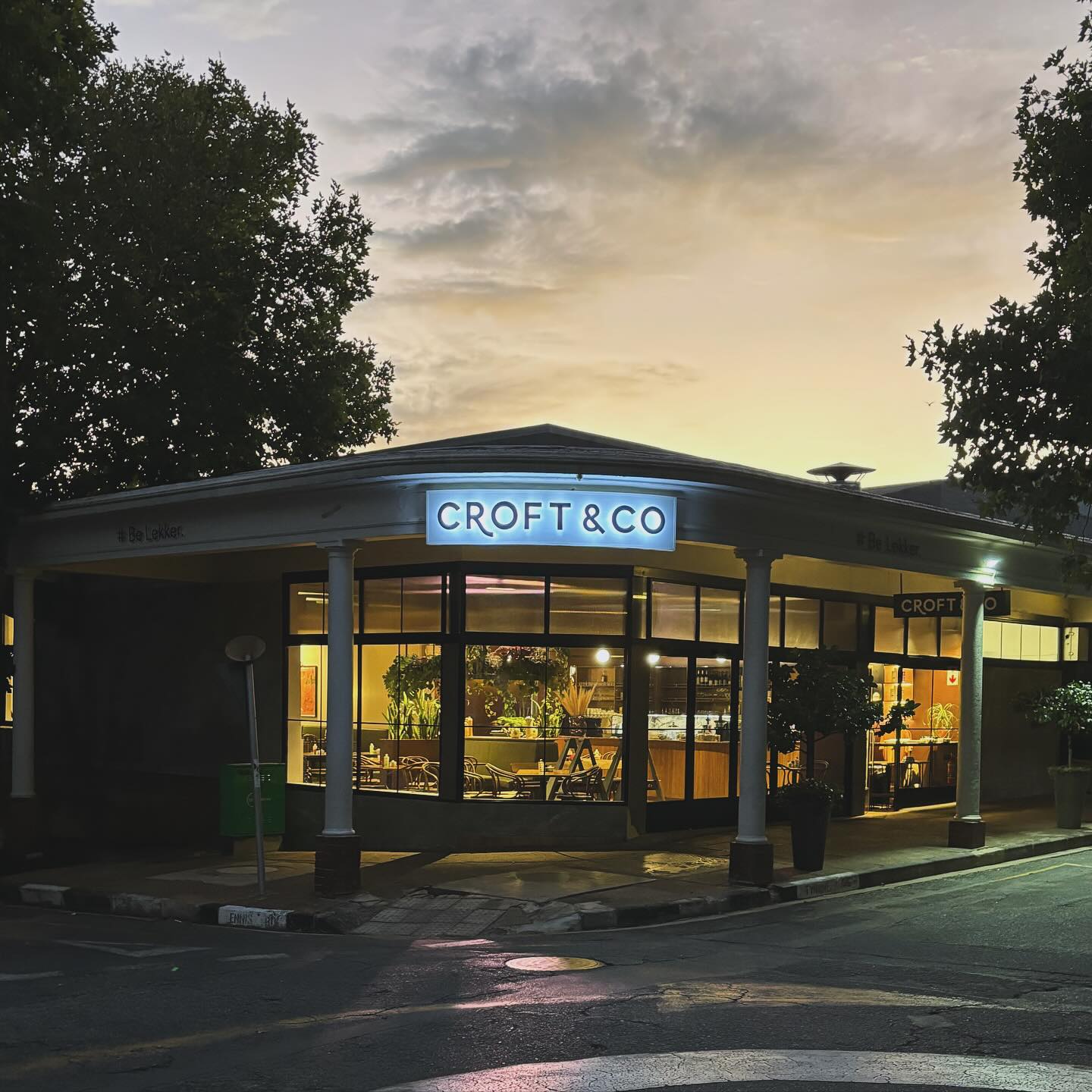
What three things should a visitor not leave Joburg without seeing or experiencing?
Our galleries, theatres, bookstores, and [fourth], our public parks.
One song on your Joburg soundtrack that either is about Joburg or makes you think about this city?
Sisonke Xonti’s The Migration Suite Part III.
The most memorable meal you have eaten in Joburg?
The beyaynetu plate [a mix of vegan curries and vegetables served on a plate of traditional bread called injera] and a coffee from Little Addis Café!
If you were the Joburg mayor for one day (average tenure) what would you change?
You know how people use one of their magic lamp wishes to ask for three more wishes? I’d just keep doing that, but adding another mayor each time until there’s a whole task force of mayors.
If you could buy one Joburg building which would it be?
The Johannesburg City Library! Then we could finally get it open again.
What's your favourite place to see art in the city, and why?
The city itself. We have some of the best graffiti, public art, and public performance in the country.
What makes someone a Joburger?
Once or twice a year, you need to tell everyone that you hate the place and that you’re leaving for good. Then, after a short trip to Clarens or Cape Town, or even your nearest public park, come back and profess your unwavering love for Johannesburg.
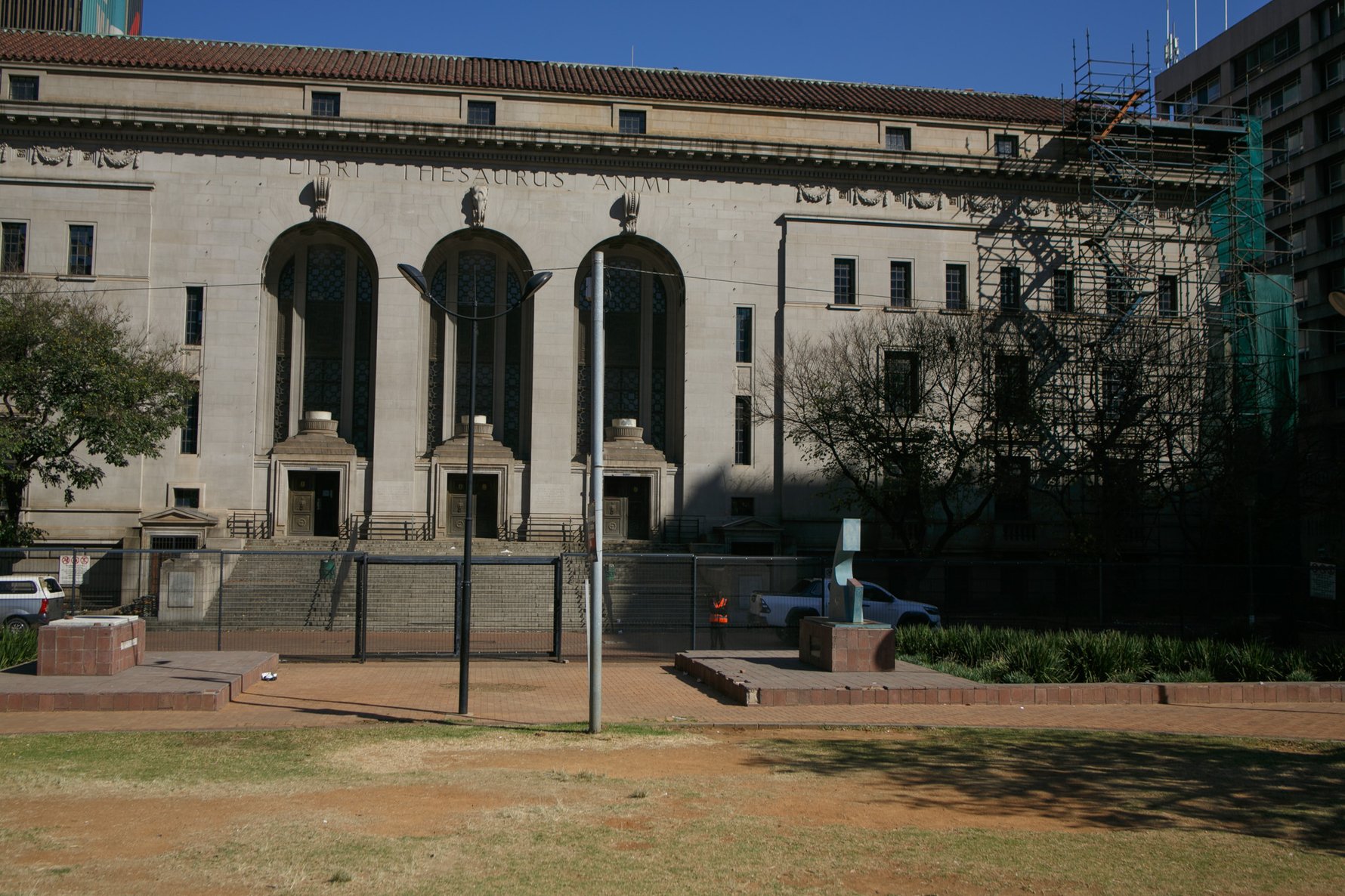
What do you love most about Joburg?
The people, and the Highveld summer storms.
What do you least like about Joburg?
Those billboards with portraits of grinning real estate agents. They’re like little jump-scares.
Your number-one tip for a first-time visitor to Joburg?
Keep it moving, we’ve got things to do.
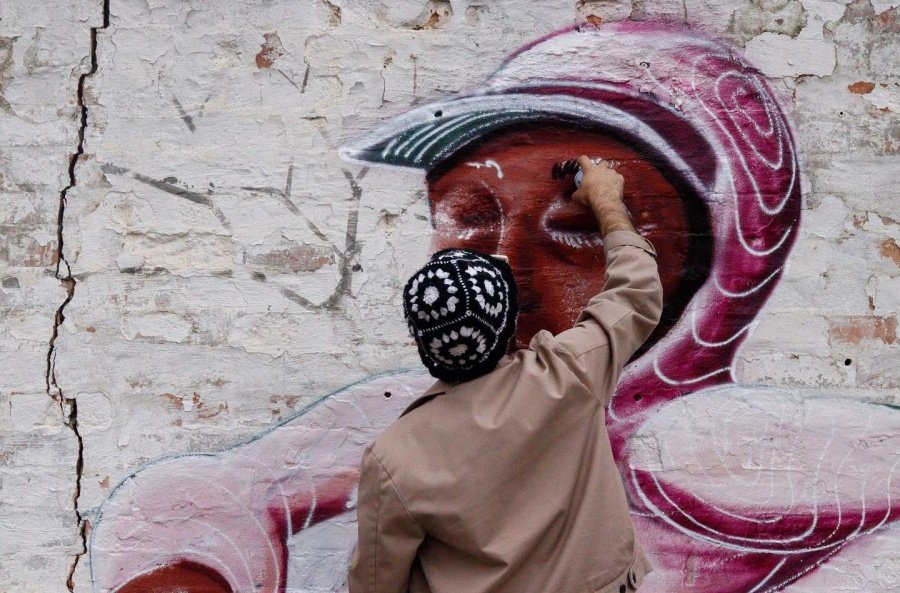
One Joburg personality whom you would honour with the freedom of the city if you could, and why?
The public artist. Public art is an essential part of a city in constant conversation with itself.
The perfect weekend in Joburg includes...
The gallery, theatre, bookstore, café, park, and probably a quick trip to the mall if we’re being honest.
Three words that describe this city.
Full of hope.
Once Removed is available from Love Books, Bridge Books, and David Krut Bookstore in Joburg. Attend the book launch at Melville's Love Books on Wed, Jun 5 from 17:30, where Mann will be in conversation with Wits English professor Michael Titlestad. RSVP with kate@lovebooks.co.za
Check out some of our previous #MyJoburg interviews for more insights into the city:
#MyJoburg with Nickolaus Bauer, journalist and Dlala Nje co-founder
#MyJoburg with S'BO GYRE, rapper and performer
#MyJoburg with Phil Thurston, Mara Lounge founder


 Photo by Youlendree Appasamy_m.jpg)
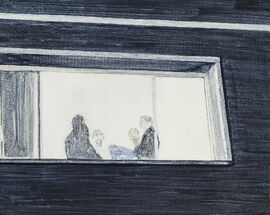
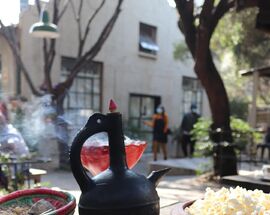


Comments